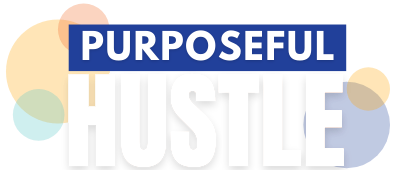When it comes to workplace inclusion, one group that is often overlooked is people with disabilities. This encompasses a wide range of people who experience varying degrees of disability, both mental and physical. According to the U.S. Department of Labor, “In 2021, persons with a disability accounted for 11.9 percent of the civilian noninstitutional population.” However, that number increases to 26 percent if we expand our definition of disability, according to the Center for Disease Control and Prevention.
No matter which statistic you choose, people with disabilities account for a large slice of the population. Unfortunately, population size does not necessarily mean power. People with disabilities are much more likely to experience unemployment than those without a disability, and they are often subjected to workplace discrimination.
Since December third is International Day of People with Disabilities, let’s shine a spotlight on this community, and discuss how to celebrate and empower people with disabilities in your workplace.
1. Recognize Not All Disabilities Are Visible
Chances are, someone in your workplace has a disability that they’ve chosen not to share. Depression, dyslexia, anxiety, certain chronic illnesses—these are all examples of disabilities that are not necessarily obvious on the surface. Keep in mind that some people choose to protect themselves from potential discrimination or bias by keeping “invisible” disabilities to themselves.
That’s okay! It’s up to the individual whether or not they’d like to divulge their disability. As a leader, you can support those with invisible disabilities by:
- Creating a safe space to communicate/offer feedback, in case someone does want to open up about their disability
- Being empathetic and understanding when someone prefers to approach their work differently (e.g., someone with anxiety may choose to take on more solo projects, or may prefer to keep their camera off during team video chats)
- Providing access to resources for anyone who may need them
2. Capitalize on Strengths
Instead of focusing on a person’s disability, turn your attention to their strengths. Everyone has an area where they excel, and it’s up to leaders to capitalize on those areas. For example, maybe someone is a skilled data analyst but has a speech impediment that causes her to freeze up when presenting in front of a large group. Instead of requiring that person to present their findings out loud, offer different pathways for presenting their data (through charts, a written report, or by relaying the information to someone else who will conduct the presentation).
3. Be Flexible
People with disabilities may find a traditional work schedule or setting difficult. Some may have difficulty functioning in the morning and feel more comfortable or energized when working at night. Others may have difficulties with long commutes or may not be able to drive a car. Some may find the workplace distracting and have difficulty focusing in a loud or chaotic environment.
Whatever the case, it is helpful for many individuals to have the flexibility to set their own schedule and choose their own work setting. This means company leadership must be flexible, too. Instead of focusing on how the work is done, shift the focus to what is done—the results, not the process.
4. Provide Resources
Workplaces have many opportunities to provide resources to employees with disabilities. These include:
- Providing comprehensive healthcare plans (which include both mental and physical wellness)
- Offering counseling for mental health
- Establishing feedback channels, so employees can voice their ideas or concerns
- Personal plans for employees, which can establish a special work schedule or improve their work station (outfitting it with a wheelchair-friendly desk, providing speech-to-text programs, etc.)
- Starting employee resource groups, or ERGs, which “are employee-led groups that support and empower people from underrepresented backgrounds.”
All this work doesn’t have to be conducted alone, without guidance. Organizations can opt to hire a DEI consultant to help them improve company policies and inclusivity practices.
--
People with disabilities should not be recognized and celebrated on just one day. Rather, they should be part of the conversation when it comes to improving inclusivity practices in the workplace. This starts with building awareness and taking meaningful action.








Leave a Comment